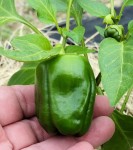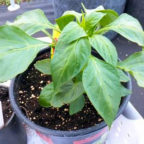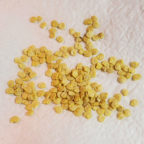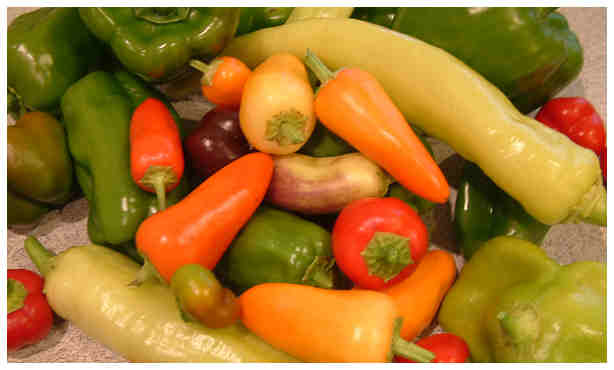How Long Do Pepper Plants Live – Update
How long do pepper plants live — really? In the years since my original post, I’ve come to think somewhat differently about this interesting plant and its fruit. And while I don’t know that I will be able to speak to bell peppers, I think I will be able to talk about sweet and chile peppers.
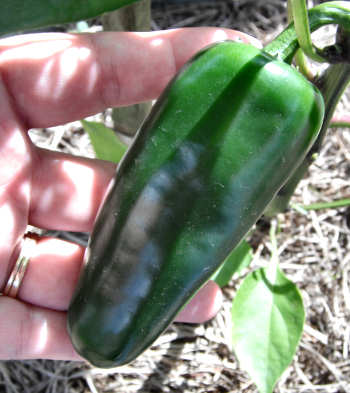 (The reason I can’t speak to bell peppers is that to date, I’ve never had one last very long. I have bad bell karma, I guess.) ;) However, those who have better luck with bells may be able to relate to what I’ve discovered.
(The reason I can’t speak to bell peppers is that to date, I’ve never had one last very long. I have bad bell karma, I guess.) ;) However, those who have better luck with bells may be able to relate to what I’ve discovered.
Getting in the Zone
How long your particular pepper plants live is dependent upon what plant hardiness zone you live in. Peppers are really warm-weather plants, and they can’t handle frost and freezes. If you live in zones, say, 8b to 11, you can probably overwinter your peppers outside. You may need some frost protection from time to time, but if you can do that, it’s a possibility.
North of 8b, you’ll have to overwinter your plants in containers inside. If you have a heated greenhouse, that’s the best option. Otherwise, inside with grow lights is what you’ll need to do.
Why Bother Keeping a Plant Alive?
Good question! Typically, I don’t bother with “everyday” plants — those peppers that I can easily grow from seeds or find at a local big box store. However, a plant that is harder to replace, or one that has produced extraordinarily for you, may be a candidate for keeping alive.
For example, I really enjoy the Fooled You jalapeno pepper that I grew a couple years back. It’s a hybrid, so I can’t really save the seeds. This time, if one of my plants (I have three seedlings) is outstanding, I am going to try to keep it going.
Preparing Your Pepper Plants
How do you prepare your peppers? Be prepared for some “tough love” in order to overwinter.
If you can routinely expect more than two or three freezes in a winter, you’ll need to uproot your pepper and put it in a container you can manage to move around; probably between a 3 to 5 gallon container. If you are already container growing and can move the container inside, you’re a step ahead. If you’re digging the plant up from the ground, you will need a container ready, along with some loose but rich soil ready.
You’ll have to do the uprooting carefully. If your plant is big an unwieldy, you may want to lightly prune – enough so that you can easily handle the plant. Use a shovel to dig in a circle around the plant, starting about a foot away from the stem.
Once your have the plant dug up, gently shake the soil from the roots. Depending on the size of the roots, you may need to lightly trim them back with a sharp pair of scissors. (Or, use a larger container.)
Put some of the prepared soil into the container to about 1/3 the depth. Put the plant into the container and back fill with more soil. Give the plant a light watering, and place it where it can get some morning sun — you don’t want to give it too much sun until it’s settled into the container some.
Clip! Snip!
A few days after your transplanting, or, even if your pepper plant is already in a container, it will need a haircut. Why?
The light available to your plants in Winter is much less than in any other season (in the northern hemisphere, anyway). Inside, your pepper plant will get even less light, unless you have a very bright grow room. Your pepper plant will need fewer leaves to support while it’s in a lower-light and cooler environment.
How far back should you prune? Half its height is a good place to start. I’ll have a post about pruning peppers in the near future; I’ll link to it when I have it ready.
Food and Water
During its overwintering, your pepper will need less water — let the soil dry out between waterings. As far as food goes, you will only need to fertilize rarely, with a low-strength solution. I would say to use fish fertilizer, but only if your are over-wintering outdoors — it would smell a bit much in the house.  😉
Light and Warmth
As you might guess, your pepper plant will need as much light and warmth as you can manage, once it’s acclimated to its re-potting and pruning. Your pepper will appreciate temperatures in the low 70s, and still would like 6 hours of direct sun. Since that may not be possible unless you have a greenhouse, you will probably need to supplement with some plant grow lights.
But Really — How Long Do Pepper Plants Live?
In containers, you may be able to keep a plant going for several years. In-ground (if you are in zone 10 or 11), it could be indefinitely. In any case, you will need to decide how long your want to keep your pepper plant going, and that may depend on how well it keeps producing.
Hope this has helped some!
